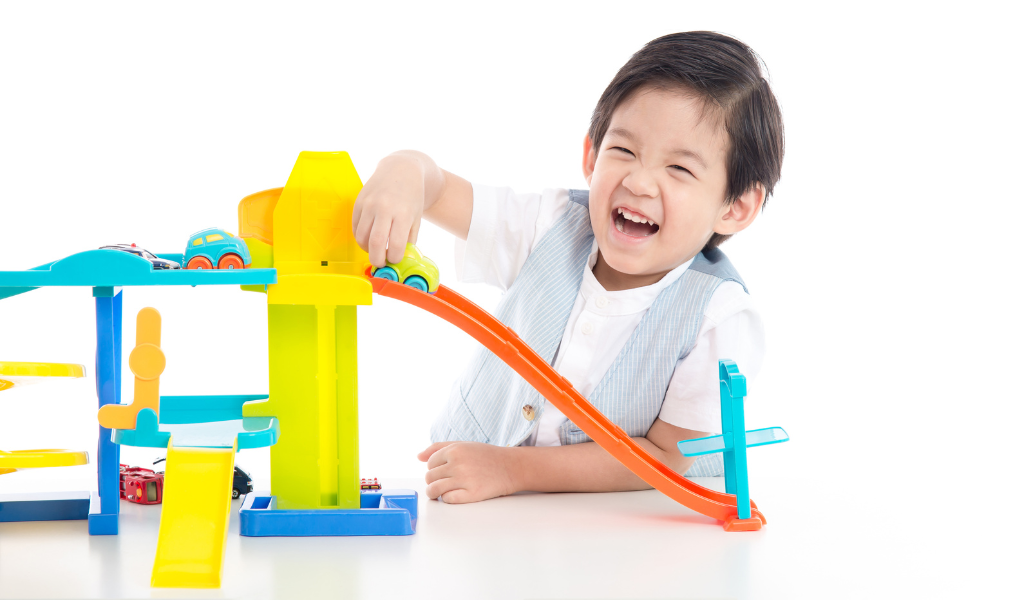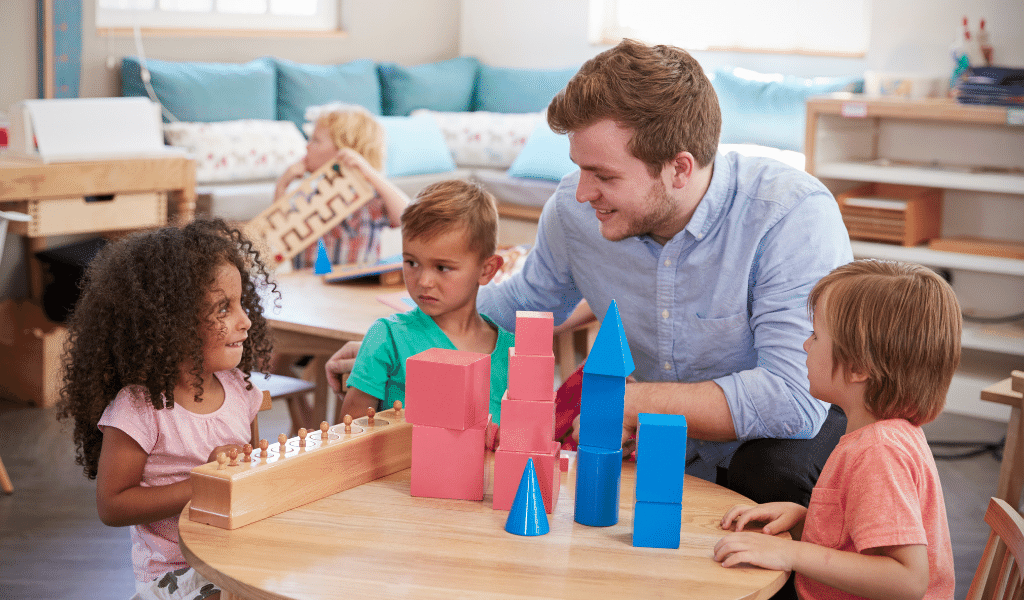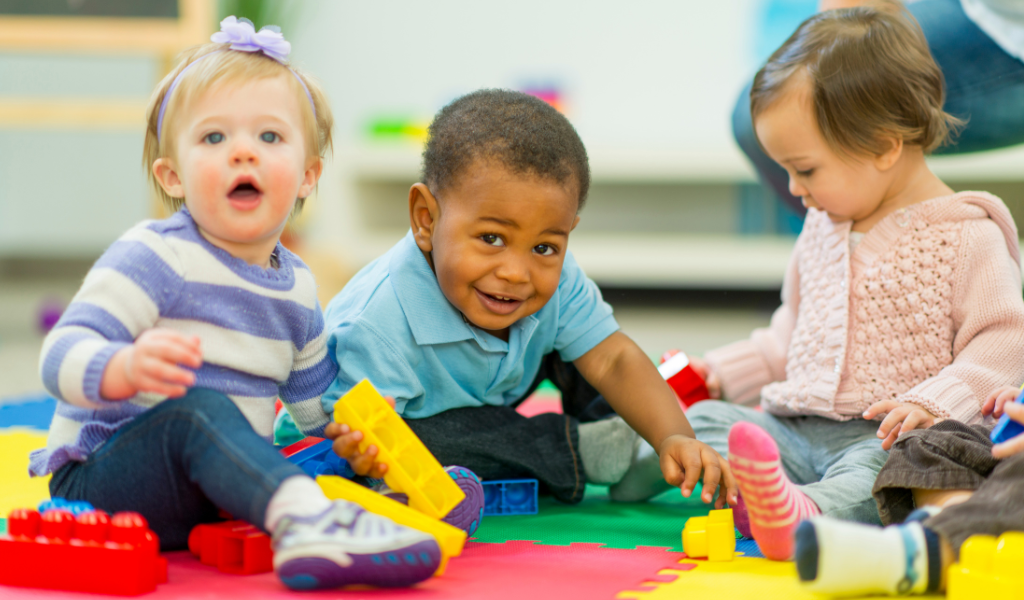Children are continually engaging with the world around them, exploring their curiosities and learning from their experiences. These early moments are essential to growing their self-confidence and building the foundations for their self-esteem.
We turn to child emotion specialist Mina Minozzi for her advice and the 5 simple ways we can encourage confidence in the early years using the acronym AWARE.
1. We can pay attention by observing a child’s interests and use them as a way of practising new experiences. For example, if the child is passionate about cars, we could play with toy cars, imagining we are both on a journey to one of their favourite places. We could introduce other vehicles too, extending their knowledge, talking to them about what they might see and experience in a vehicle that they may not have travelled in before.

2. It can be tempting to remove obstacles or do things for a child but remember we won’t always be there to help. For example, if a child is trying to lift a large toy, wait and watch, see what they do. We can let them know we are there by acknowledging their actions, “I can see you want to move the block to the wall.” If they struggle and get frustrated, we can offer guidance and then wait, “What about if you pushed the toy”. This allows for them to try a different way and practice their persistence.
3. When we ask for children’s expressions of their needs, wants and interests, it can encourage their self-confidence. For example, offering the options of activities they might like and asking them which they would like to do. In addition, asking children to partake in an everyday task or if they would like to help, contributes to their self-esteem, nurturing their feelings of being valued and listened to.

4. Children are aways watching us and this includes how we approach challenges and our attitude to experiences. They see our behaviour and responses as a reference for when they are faced with a similar situation. We can encourage their confidence through modelling, showing enjoyment towards a new experience or enthusiasm to exploring a new place. For example, an opportunity to model would be on a rainy day; children can see us get excited in anticipation for jumping in puddles or expressing our eagerness at the possibility of spotting snails and slugs.
5. Focusing on effort put in and experimentation are important for growing a child’s confidence. When playing a game, we can shift the goal of winning or losing to trial and error, concentrating on the attempts made and then reflecting on whether they were successful or not. For example, “I see you chose to put it there” and if it didn’t work you can reflect on what they could do instead, “That didn’t work did it, what else could you do?” The fun of discovering what works and what doesn’t encourages a child’s resilience in future situations.

We can nurture children to have a positive perception of their self-worth and help with their ability to deal with new situations. Remember, to support children’s confidence use AWARE; pay Attention to their interests, Wait and see before helping, Ask and invite involvement, Role model enthusiasm for new experiences and focus on Effort and actions taken.
Mina Minozzi’s recent webinar is now available on demand for Kinderly Learn members. Not a member? You can join Kinderly Learn to access this along with 100’s of webinar’s on demand on our early years learning platform.
About the Author:

Mina Minozzi is a Child Emotion Specialist and international children’s author. She has a MSc in Child Development from the Institute of Education and over 12 years’ experience. She specialises in children’s confidence development, anger regulation, anxiety and stress management. She shares her understanding and skills of guiding children’s emotions with parents, businesses, education and care providers. Mina’s inclusive superhero book series introduces school aged children to emotional intelligence. She has consulted for CNBC make it, The Kids Network, Penguin Random House.